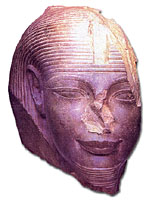
The case of 'US' v. 'Schultz' dealt with the trial of Frederick Schultz, an American art dealer convicted of dealing in stolen Egyptian artifacts. This case is the most significant in American politics to date in the forum of cultural property in the way that the US dealt with him. Schultz had purchased a number of artifacts at a low price in the 1990's and had subsequently made a number of sales of hgh-quality merchandise following their acquisition. The artifacts, which had been disguised as cheap knock-offs through the use of acrylic dips and paint, were imported illegally to the States and then sold to Schultz. This is important for several reasons:
- Schultz did not purchase the items in Egypt, nor was he responsible for their movement through customs
- He may seem to have plausible deniability, but US courts ruled against him on the basis that he sold them at a high enough price to indicate he had known their true worth
- Schultz was subsequently convicted under Egyptian definitions of cultural property laws that the US agreed to uphold
A very good article detailing the case was written in Archaeology Magazine, enitled "Selling the Past: United States v. Frederick Schultz" .
The McClain/Shultz Doctrine is another good article, written by Patty Gerstenblith, ex-head of CPAC and head of the Cultural Property Law Department at DePaul University of Law.
